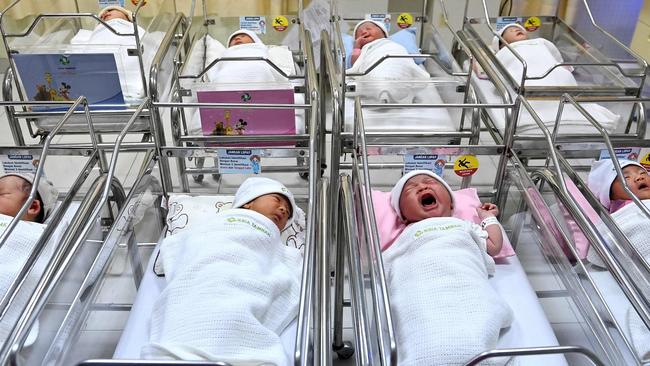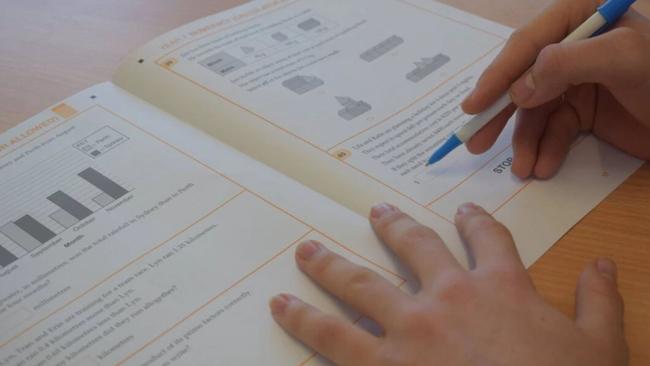Monash University study finds link between kids born to elective inductions and poorer NAPLAN results
Elective inductions are on the rise but there are now calls for more research after Melbourne experts made a surprising finding.

Victoria
Don't miss out on the headlines from Victoria. Followed categories will be added to My News.
A Victorian study has found babies born through induced labour are associated with “poorer educational outcomes”.
The Monash University study found babies born at 39 weeks to first-time mums who had an elective ‘kick start’ to labour had “significantly” poorer NAPLAN results in Year 3.
They were more likely to fail to meet minimum standards, prompting calls for comprehensive research into the long-term impacts of induced labour on babies.
But by Years 5 and 7, there were no noticeable differences in NAPLAN scores between these children and those expectantly managed from 39 weeks, meaning no intervention was offered at that time and they went on to be born via caesarean, natural or induced labour.

But the opposite happened when comparing children born via elective induction at 40 weeks. While there was no impact seen in Year 3, they were worse off in Year 5 and 7.
The study, which involved more than 100,000 Victorian infants, measured key learning areas: reading, writing, spelling, grammar and numeracy and controlled for factors including parents’ jobs, education and region.
With the rate of inductions among first-time Australian mothers jumping from 26 to 46 per cent between 2010 and 2020, lead researcher Roshan Selvaratnam said patients deserved more information about the potential long term risks.
“If you induce all women at 38 weeks you would reduce the risk of stillbirths but at what cost would that be to the short term and long term outcomes for the children born,” he said.
“They should be aware of that in the decision making process.”
Mr Selvaratnam said their study, while not definitive, raised important questions that require further research.
“There was an association between elective induction and poorer NAPLAN outcomes across the variety of different ages,” he said.
“Although it was inconsistent, it does show that there is an association and further research is needed in this area.”
The study, published in the Journal of Paediatrics and Child Health, also involved Health Department secretary Prof Euan Wallace, Safer Care Victoria and New South Wales University.
Mr Selvaratnam said prior studies, such as the ARRIVE trial, had focused on the short-term benefits of elective induction but had not measured long-term effects.
The ARRIVE trial was a landmark US study, published in 2018, that found elective inductions for low-risk, first-time mums could reduce rates of Caesareans and pre-eclampsia.
He said: “A lot of clinicians across the world have used that trial [the ARRIVE trial] to offer elective induction to women at 39 weeks”.
“Our question was does that carry potential harm into the long term.”
It comes after a Melbourne University study – revealed in the Herald Sun last month – found mums who were induced at 39 weeks were less likely to suffer severe childbirth injuries.
The researchers in that study, which focused on the health impacts, also found births were less likely to involve forceps or vacuum extraction and admission rates to neonatal intensive care unit were lower.




